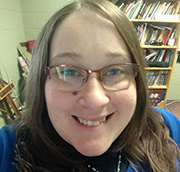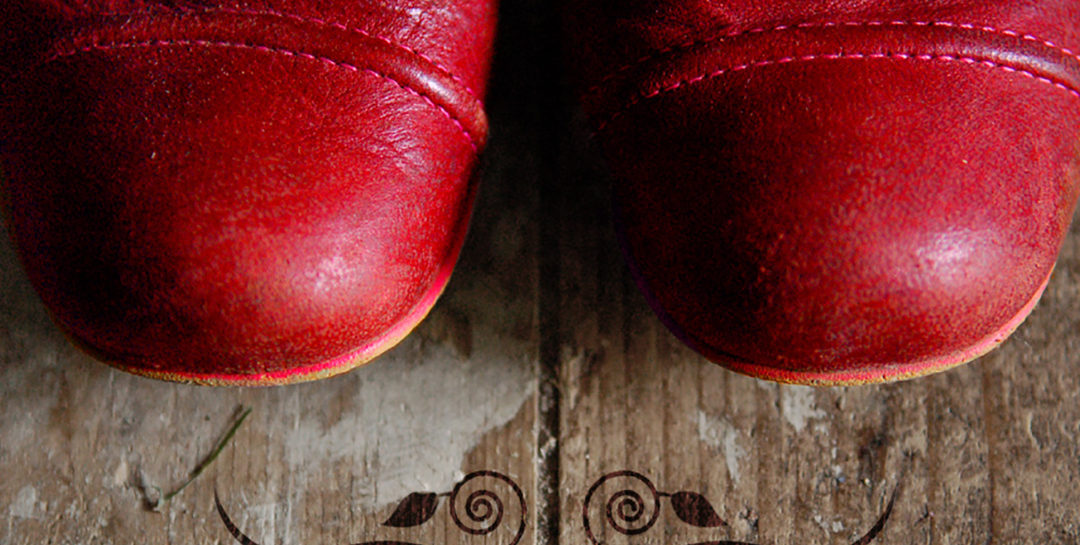by Lisa Heffernan
Most of the time, I hate my feet. They’re tiny, have terrible circulation, get puffy sometimes, and I had a wound on one of my toes that stuck around for almost six years. As a paraplegic who was born with spina bifida, my relationship with my feet and legs is just strange anyway. I don’t walk, so what do I need to take care of them for?
That was my thought, anyway, for quite a long time. What really mattered were my arms and core muscles! Those are strong and I rely on that strength to keep me independent and healthy.
Once someone unthinkingly said to me, “You should just get rid of your feet. You don’t use them anyway, right?”
The memory of that comment makes me cringe now, and not just because it has to do with my own body. I know I’d still be a whole person even if I didn’t have my feet. I cringe because that comment makes me wonder: Would it be right to cut off or remove a part of a body that is weaker or less functional? No — at least not for me.
I can’t speak for others who have physical disabilities and what the realities of their lives are. For me, though, my mind goes down a theological rabbit hole and falls into my favorite piece of scripture: 1 Corinthians 12, when I ponder what it means to belong–however you are embodied or gifted—to the body of Christ.
If the foot would say, “Because I am not a hand, I do not belong to the body,” that would not make it any less a part of the body. And if the ear would say, “Because I am not an eye, I do not belong to the body,” that would not make it any less a part of the body. If the whole body were an eye, where would the hearing be? If the whole body were hearing, where would the sense of smell be? But as it is, God arranged the members in the body, each one of them, as he chose. If all were a single member, where would the body be? As it is, there are many members, yet one body. The eye cannot say to the hand, “I have no need of you,” nor again the head to the feet, “I have no need of you.” On the contrary, the members of the body that seem to be weaker are indispensable, and those members of the body that we think less honorable we clothe with greater honor, and our less respectable members are treated with greater respect; whereas our more respectable members do not need this. But God has so arranged the body, giving the greater honor to the inferior member, that there may be no dissension within the body, but the members may have the same care for one another. If one member suffers, all suffer together with it; if one member is honored, all rejoice together with it. Now you are the body of Christ and individually members of it. (1 Corinthians 12:15-27)
Paul reminds the believers at Corinth that they are indeed a community, meant to live, work, and serve interdependently. They are the body of Christ, joined to one another through and by Christ himself. Does the body need each part? Yes! Because God has given each part, each member, a place to belong.
Often I wonder how the church in all its forms is succeeding at living together as this one body, with its many parts valued, loved and honored.
Do we look at our siblings in Christ with all their different gifts, abilities, and disabilities as assets to our life together? Do we even bother to care for anyone whom we deem less worthy to be a part of the body of Christ?
I see great things, great ministry that we as the ELCA are doing to become more inclusive and willing to live out our baptismal call to care for everyone whom God has made. I have the privilege of serving as a part of the ELCA Disability Ministries team, and it is so encouraging–indeed it is a gift from God–to see how many congregations and ministries are doing the hard work of becoming more accessible and welcoming to people with disabilities.
We are the body of Christ, together. If we aren’t all together at the table, we miss out on relationship and experiencing how God moves and acts in all people.
I love getting to talk with other leaders about the ways in which we can adapt our worship and our educational opportunities to be more inclusive too. It makes me proud of our congregations, leaders, and volunteers who understand Paul’s words: We are the body of Christ, together. If we aren’t all together at the table, we miss out on relationship and experiencing how God moves and acts in all people.
Do we always do this well? No, not really. We’re still pretty good at telling each other that we don’t belong for any kind of reason. And I honestly think we will continue to build relationships and resources to make our houses of worship and lives together more accessible – in all senses of the word. But that’s a good thing: Finding and building resources builds up the body. It makes the body richer when we look at another person and say “You belong here, too. You are God’s child, too. We’ll figure this out together.” (This is something that my best friends from college and seminary were particularly good at saying to me when we faced obstacles.) The body of Christ is growing stronger and more accessible as more and more people are being welcomed, seen, heard, and loved at our Lord’s Table.
Over the years, that wound on my right big toe – the wound that wouldn’t heal — became a sort of wake-up call for me to start caring for my little purple feet and legs better, even though I don’t use them the same way many other people do. My struggle with that wound reminded me that the whole body matters, it has value. As I try each day figure out how I belong in this body of Christ as a person and pastor with a disability, Paul’s words to the church in Corinth and God’s promises of grace and hope cling more tightly than that dastardly wound ever did. I have a place in this body of Christ. So do you. So do each one of us: those with disabilities, those without — everyone. We belong to Christ and to one another. May we ever strive for a full union of our many members.
Discussion questions:
1. How can we work together, with our abilities and disabilities, to strengthen our lives together as followers of Christ?
2. Who do we most value in our congregations and lives? Who do we value less or not at all? Why?
3. How can congregations begin to think about the accessibility of their churches, both in a physical and relational sense? Where may God be leading your congregation as you consider how you might become more accessible or how you might learn more about our siblings in Christ who have disabilities?
Closing prayer:
God of all people, We thank you for the gifts you give each one of us to serve in the name of Jesus Christ. Help us to care for and love one another, especially those whom we may view as lesser than ourselves. Help us to see each other’s minds, bodies, and hearts as beautiful in their own ways, as we seek to create a church without barriers of any kind. May we see one another as your beloved children, each needed to participate in your mission of love and justice in our world. Amen.
 The Rev. Lisa Heffernan, 32, serves as the solo pastor of Trinity Lutheran Church in Chamberlain, S.D. She is also a member of the ELCA Disability Ministries team.
The Rev. Lisa Heffernan, 32, serves as the solo pastor of Trinity Lutheran Church in Chamberlain, S.D. She is also a member of the ELCA Disability Ministries team.
Photo by Agatha Brown from Morguefile.com. Used with permission.

